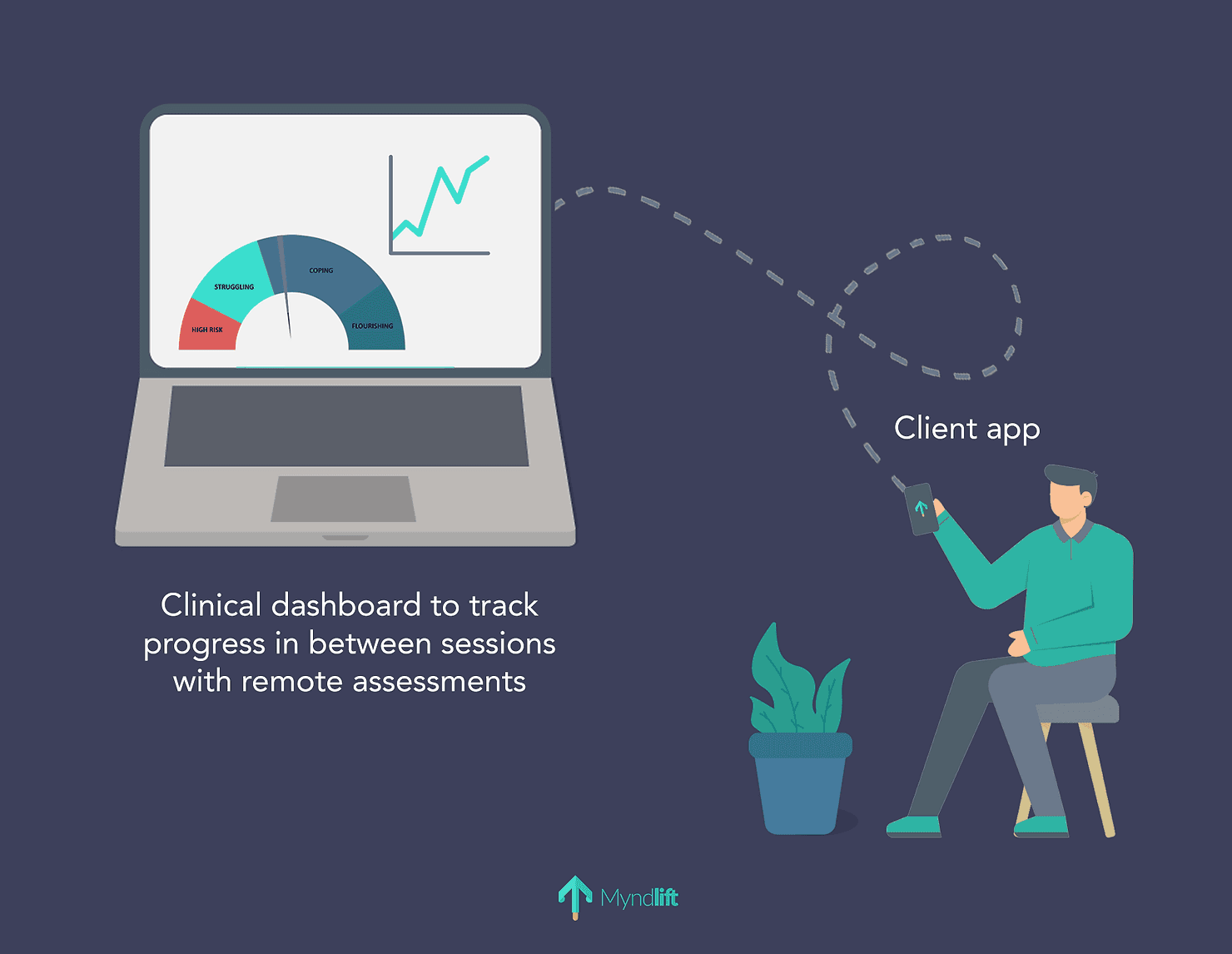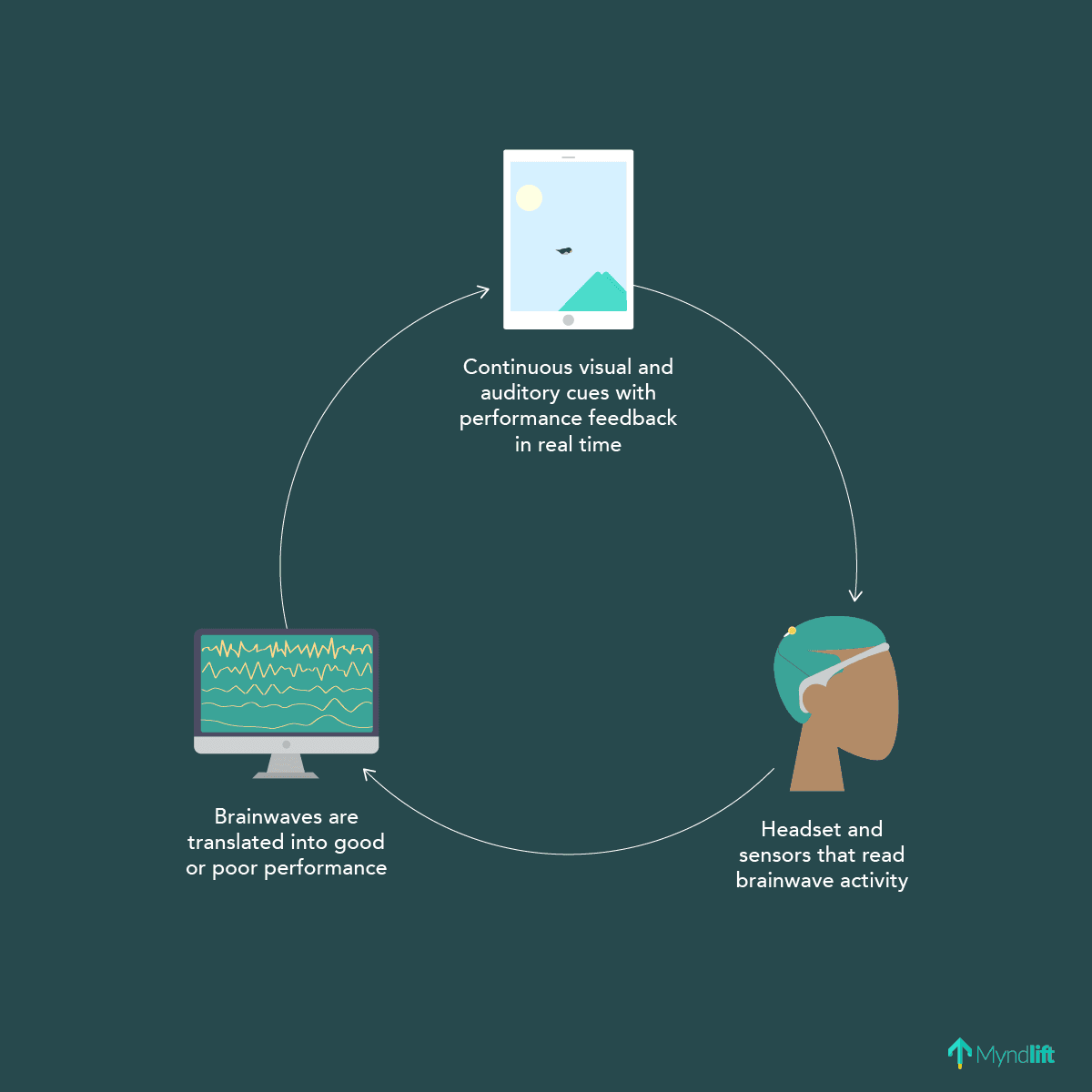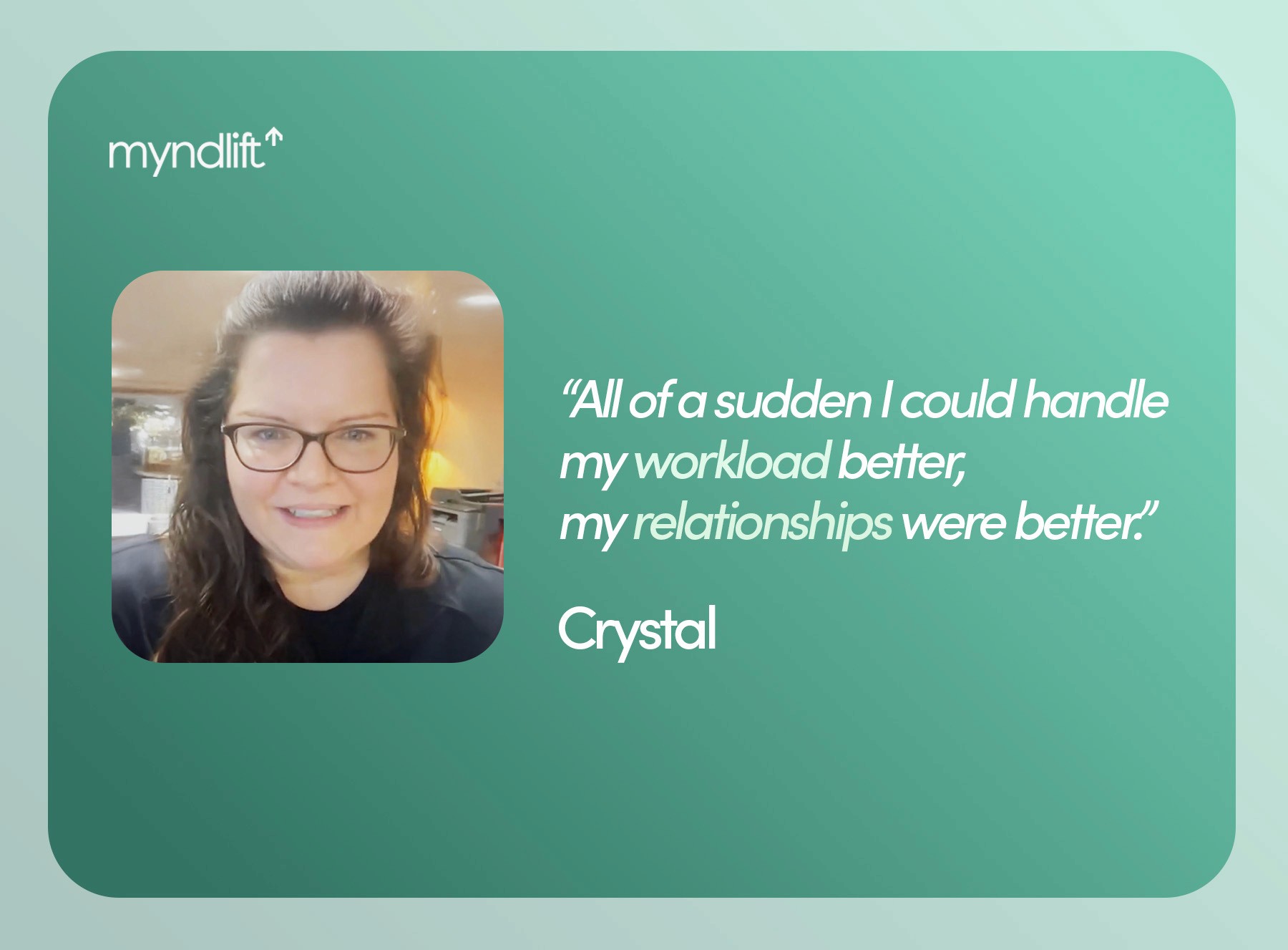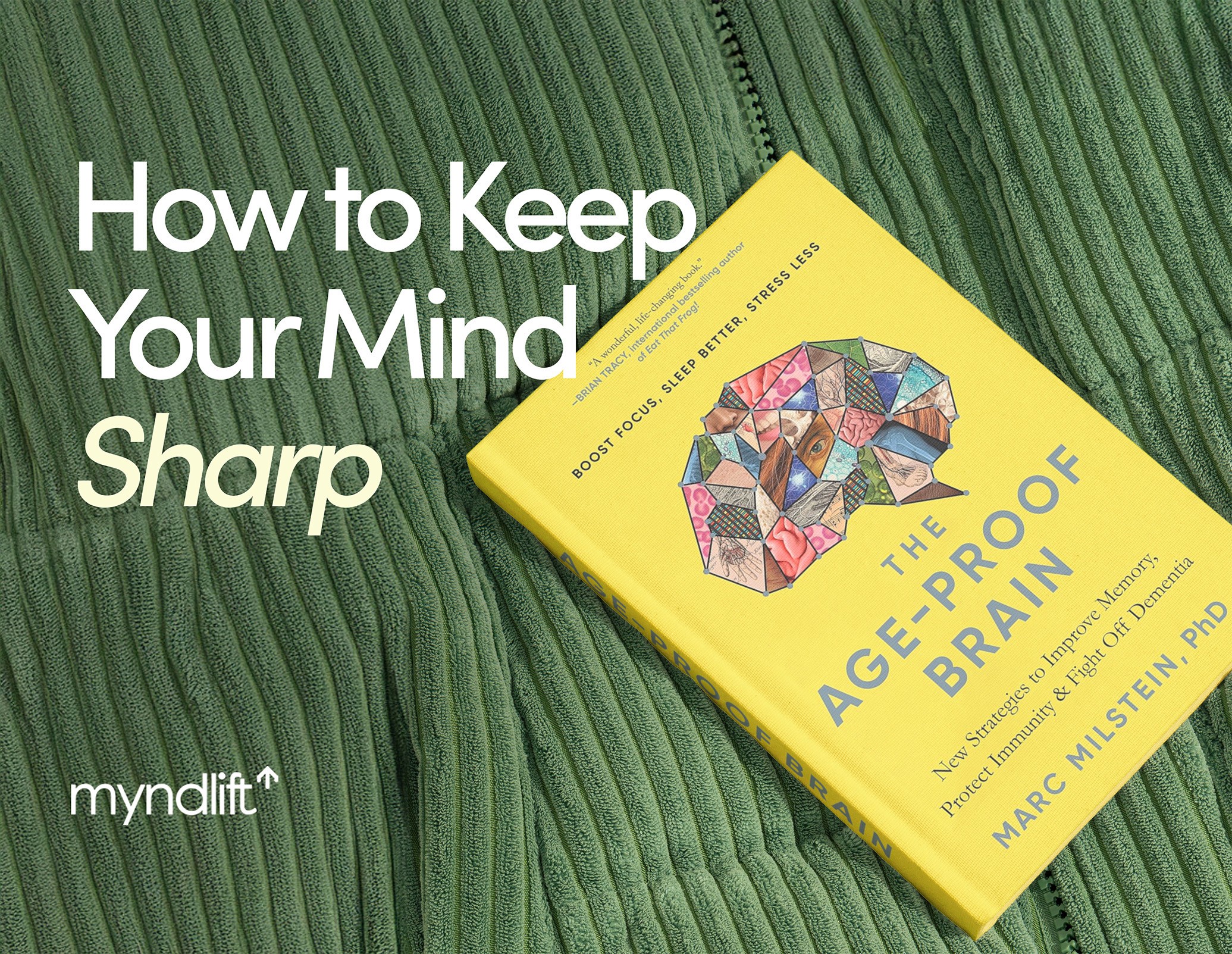Imagine having an assistant, a faithful companion, who makes sure that your clients get the care they need 24 hours a day, seven days a week. That companion of yours also tracks the client's symptoms and moods, as well as their progress on a daily basis. And, it gives them a science-based coaching toolkit to use in between sessions.
As a result, the time you spend on administration, intakes, and assessments is minimal, and you’re able to direct your time and energy to what matters the most: helping your clients.
Nowadays, these reliable assistants come in the form of digital therapy apps. If cleverly designed, these apps can help mental health professionals create a better connection to their clients, come up with data-driven decisions, and provide care to more people in need.
In this article, we're going to cover the following elements of digital care:
1) Remote mental health assessments.
2) Digital mental care with the use of digital journaling, psycho-education, guided meditations, CBT-based worksheets, and exercises.
3) On-going digital feedback for clients.
4) Neurotherapy and the option to do EEG tests and remote neurofeedback training.
Let's take a look at how adding these four elements to your mental health toolkit can improve your workflow.
Remote Symptom Tracking and Assessments
An assessment is the first step in addressing clients' problems, challenges, and circumstances, as well as being a crucial element in designing the correct mental health care plan for them.
But, let’s face it, assessments can be cumbersome and time-consuming. And many mental health professionals are scheduling recurring ones based on the client’s psychological functioning, which can be challenging to keep track of.
Wouldn’t it be more convenient if you could set recurring assessments for clients to complete on their own and easily keep track of their results?

That's where Myndlift for mental health practitioners comes in with a goal to empower mental health specialists to take a step towards a data-driven practice so they can focus on the important stuff: treating their clients.
With Myndlift, a mental health practitioner can remotely track and assess clients' mental and brain health using:
Recurring assessments: The option to choose from 40+ standardized questionnaires, including PHQ-9, GAD-7, and more.
Custom questionnaires: The ability to create a custom questionnaire with the appropriate response scale to instantly deploy to any client's Myndlift app.
Auto-generated client reports: Fully visualized questionnaire results and auto-generated client reports that can be shared directly with clients from the clinician’s dashboard.
Cognitive tests: Assessments include cognitive tests such as continuous performance tasks (CPT), also known as Go/No-Go, to measure a client's sustained attention.
EEG tracking: Being the leading remote neurofeedback tool, Myndlift allows trained mental health practitioners to perform EEG tests to measure the electrical activity of the client's brain remotely or in person. This feature is optional and requires equipment. Learn more about it here.
If you are a therapist, mental health counselor, or life coach; with digitized assessments, you can manage your clients remotely, set programs, recurring assessments, and share progress reports seamlessly to deliver better outcomes to your clients. But how do you make sure your clients are getting the most out of the care you provide?
Optimizing Progress in Between Sessions
The opportunities to help your clients achieve positive outcomes are not limited to the space where therapy sessions take place. The work and progress need to continue beyond that, in their day-to-day lives, too. Therefore, it's essential to equip them with versatile tools and techniques they can draw on in daily life to practice applying interventions in the context of real-life stressors and demands.
This is when you would probably reach for your mental health toolkit and grab a handout or a worksheet or “homework” before their next session. But it might be challenging to keep track of your clients' consistency and measure the progress they make outside in the “real world”.
There might be scenarios where your clients might forget to track their symptoms, fail to do the exercises regularly, or skip practicing learned strategies altogether. But, by digitizing the experience in-between sessions and having daily insight into your clients' progress, you can increase the chances of their improvement and save time.
Myndlift can help you ensure that your clients are proactively managing their well-being outside of your sessions with:
CBT-based worksheets and exercises: You can assign your clients digital CBT exercises and worksheets to practice skills learned in therapy and track their progress.
Journaling: Your clients can journal and share their entries with you if they choose. This way, you're helping them keep you informed on struggles as well as the progress that happens in the time between sessions. You can reach out to them through text-based feedback and continue the work in your in-person sessions.
On-going digital feedback: Your clients can share their journal or CBT-based exercise entries with you, which can help you understand how they're performing and what issues need to be addressed in sessions. Furthermore, you can comment on their entries and provide them with feedback between sessions which may help them progress outside the therapy room.
Guided meditations: Guided meditations based on grounding and breathing techniques are available for your clients whenever they want to unwind and disconnect.
Psycho-education: Within the app are valuable resources covering a wide range of mental health and general well-being topics, such as managing anxiety, increasing productivity, and improving well-being.
Upgrading Your Mental Care
Your clients may wonder whether there is a more neurological basis for what's ailing them rather than something purely psychological. That's where neurofeedback comes in.
EEG and neurofeedback offer insight into how your client's brain operates and let you know where there's room for improvement. The feedback is provided using visual (games/videos) and/or auditory (sound effects/music) cues on the app screen.

Although this feature is optional, it is highly recommended due to neurofeedback’s great success in clinical settings for decades. By setting appropriate goals, individualized for each client, neurofeedback training can alleviate certain psychological symptoms and enhance cognitive performance.
If you're already a professional trained in EEG, Myndlift enables you to perform EEG assessments and offer your clients a home neurofeedback technology that’s trusted by tens of thousands of individuals and hundreds of clinicians.
If you're not trained in EEG but are interested in offering remote neurofeedback to your clients, you can learn more about how to get into the field by reading this article.
A Holistic Approach to Mental Health Care
An ideal mental care approach should consider how your client's well-being is affected by their physical, psychological, and emotional condition. This approach is often called holistic, and it considers all these elements like pieces of a larger puzzle that should be individually addressed.
And by adding digital therapy to your mental health care toolkit, you might address all the puzzle pieces in one place: evidence-based self-care resources based on cognitive behavioral therapy (CBT), coaching or therapy, human care, and neurofeedback training.
This way, you might be able to provide comprehensive care, optimize your efforts, scale your practice, and help even more clients worldwide!
Learn more about how Myndlift can help you get better outcomes with clients here, or schedule a demo right now to find out how you can get started with Myndlift for mental health practitioners. We can't wait to meet you!
About the author:
Dubravka Rebic
Dubravka Rebic puts a lot of time and energy into researching and writing in order to help create awareness and positive change in the mental health space. From poring over scientific studies to reading entire books in order to write a single content piece, she puts in the hard work to ensure her content is of the highest quality and provides maximum value.
References
Whitehead JC, Neeman R, Doniger GM
Preliminary Real-World Evidence Supporting the Efficacy of a Remote Neurofeedback System in Improving Mental Health: Retrospective Single-Group Pretest-Posttest Study JMIR Form Res 2022;6(7):e35636




